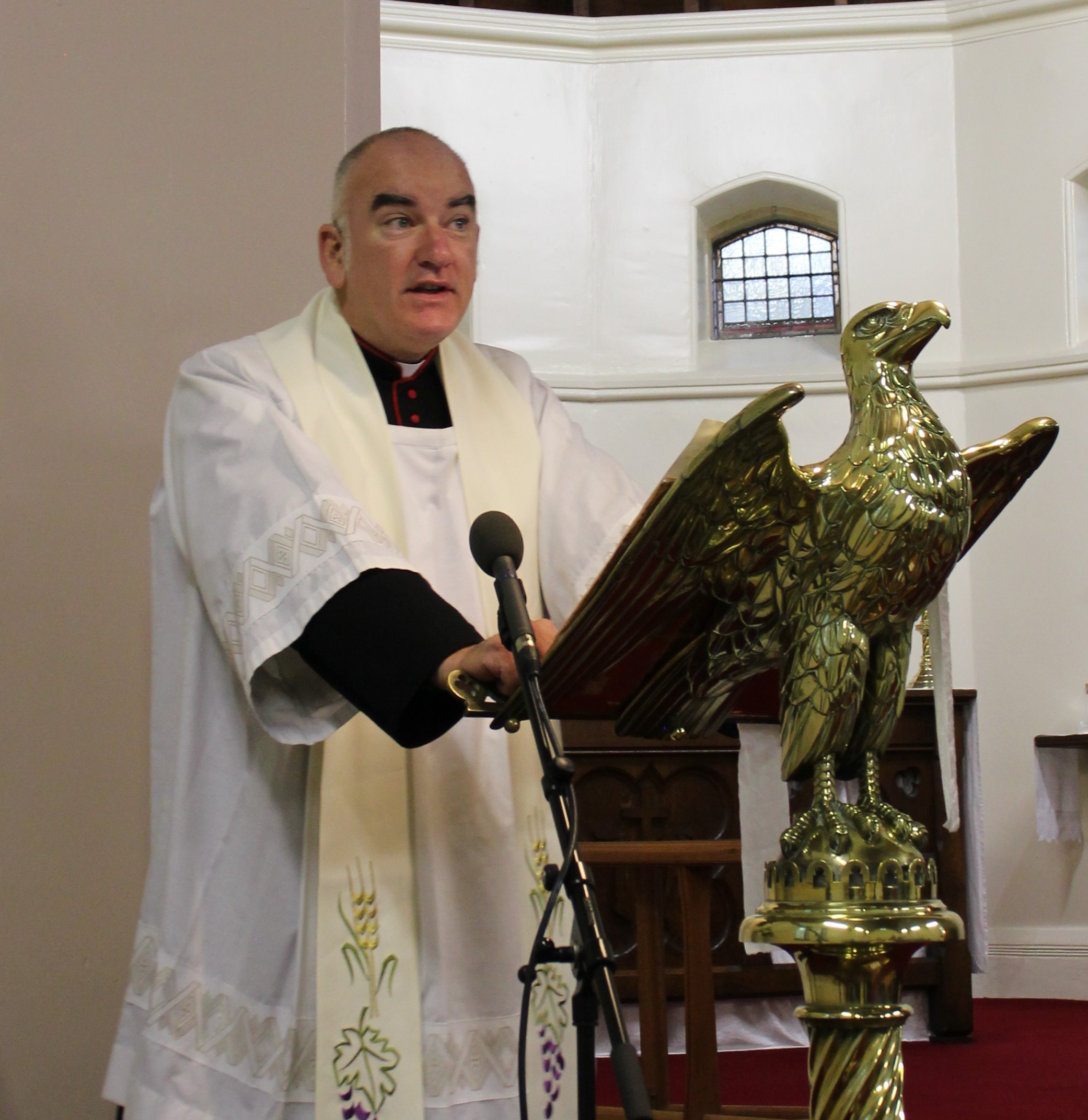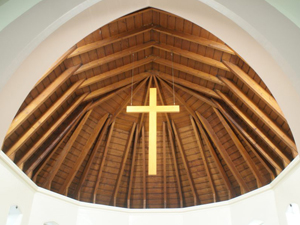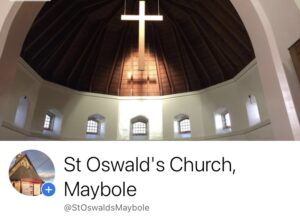Sermon preached by the Rev Canon Gordon Fyfe for the Feast of the Ascension
St Oswald’s Church, Thursday 30th May 2019

If you were to ask the average person in the street what day it is today, they might, if they answered you at all, simply say ‘Thursday’; and they’d be right. If you asked what is special about this Thursday, I guess you might be straying into more difficult territory. Few, if any at all, would be able to tell you that today is the Feast of the Ascension of our Lord. Even if you were to tell them the title of this holy day, few might be able to offer an explanation of what it is all about. Even within the Church itself, this festival seems, by its very nature to be sidelined; falling, as it always does, inconveniently on a weekday instead of fitting into our routine of gathering for worship on a Sunday. The result can be that a day as important as this, can all too easily slip past unnoticed by most.
I’m glad, then, that, despite all of this, you have made it here this evening as we gather from the congregations of the Ayrshire Region to mark the feast of the Ascension of our Lord. It is celebrated on a Thursday, of course, because today is 40 days after Easter Day; leaving 9
days until the better known Feast of Pentecost and the end of the Easter season’s 50 days of unremitting joy!
So, what can we say about the ascension; the occasion when, following his life and ministry among us, Jesus returned into the heavens, leaving his disciples behind? At a time when people believed in a three decker universe complete with an underworld below, a heavenly realm above, and a flat earth between; I guess the idea of Jesus taking off up into the clouds to return to his heavenly Father made perfect sense. But these are not the times we live in. Now, half a century after man first walked on the surface of the moon; now in this scientific age of remote space exploration; what are we to make of Jesus’ departure skywards? What is that about? Where, in fact, did he go?!
I suppose the best approach is not to try to explain this mystery, but rather to enter into it and reflect for a moment on its significance; both for Jesus and for us. The ascension of Jesus is more than simply the end of another chapter in the story of our Lord’s life. It is, in fact, an act that fulfils and makes sense of everything else. At Christmas we celebrate the incarnation of Christ – of God the Son taking on our human nature – living a human life and being Emmanuel ‘God with us’. At Easter we celebrate Christ’s victory over death by his mighty resurrection.
Today we celebrate the fulfilment of these great truths. Jesus returns to the Father. But there is more; as he said to Mary Magdalene at the tomb – he returns not just to his Father, but to our Father. Jesus does not return and things simply remain as they were. No. The great truth is that he returns complete with our human nature. Jesus the man is now in the very presence of God the Father. I suppose you could say – we have ‘friends in high places!’ For there, we are fully represented and there he prays for us continually.
But the ascension means even more than this and the clue is found is the accounts of it found in today’s readings. Normally if someone we love goes away – especially if we don’t know that we will ever see them again, we are naturally filled with sorrow and pain. But that is not how those first disciples are described. Instead, they go back to the city rejoicing as they await the gift of the Holy Spirit to fill and inspire them.
The ascension reminds us of a truth mentioned in our Eucharistic prayer by the term ‘Wonderful exchange’. Jesus becomes human and we, in turn, are offered something of his divinity – an eternal life with God. He became Son of Man; in him we recover our original identity and purpose: sons and daughters of God. Despite his going from them, the disciples were joyful because they (and we) continue to share that connection. The fate of Jesus is, if you like, the fate or better still, the destiny and calling of all of us all; to rise up to where God reigns in glory. The Lord seeks to draw us higher and higher and closer and closer to his presence and into his peace.
In reflecting on this, it is good for us always to be aware of those actions, and the attitudes within us, that pull us down; those negative influences that, like a force of gravity, we allow to draw us away from God. Our true destiny is to be found in God’s presence. Where God is; there, heaven is; and so it is entirely possible to be fully aware of being in God’s presence – of being in heaven – whilst remaining in our everyday human experience. Jesus proves that a human can, in fact, be right there with God. There’s nothing wrong with being an ordinary man or a woman. For some of us, this may be of interest and for others it may all seem a bit abstract and divorced from our daily living. I would suggest that the ascension is far from abstract. It does, in fact, define our true nature and purpose.
It seems that Jesus continually sought to heal divisions and to create community. We see this throughout his ministry as it is recorded in the gospels. We see it in his words from the cross itself when Jesus gave Mary into the care of John and gave John into the care of his mother. We see it, too, in the ascension; there Jesus disappeared from their sight with the promise he was with them always. As the eyes of the disciples stopped looking up – who, then did they see? One another – just as we can look around here tonight and see one another; We are the body of Christ. His body, the Church, is called to keep looking and to keep seeing; noticing those who are in need of care; sharing our Lord’s compassion for the weak and the vulnerable; noticing and serving all in any kind of need.
May we see Christ in the face of friend and stranger and may we fulfil our calling to be his body
and God’s presence in the world.
Amen.



